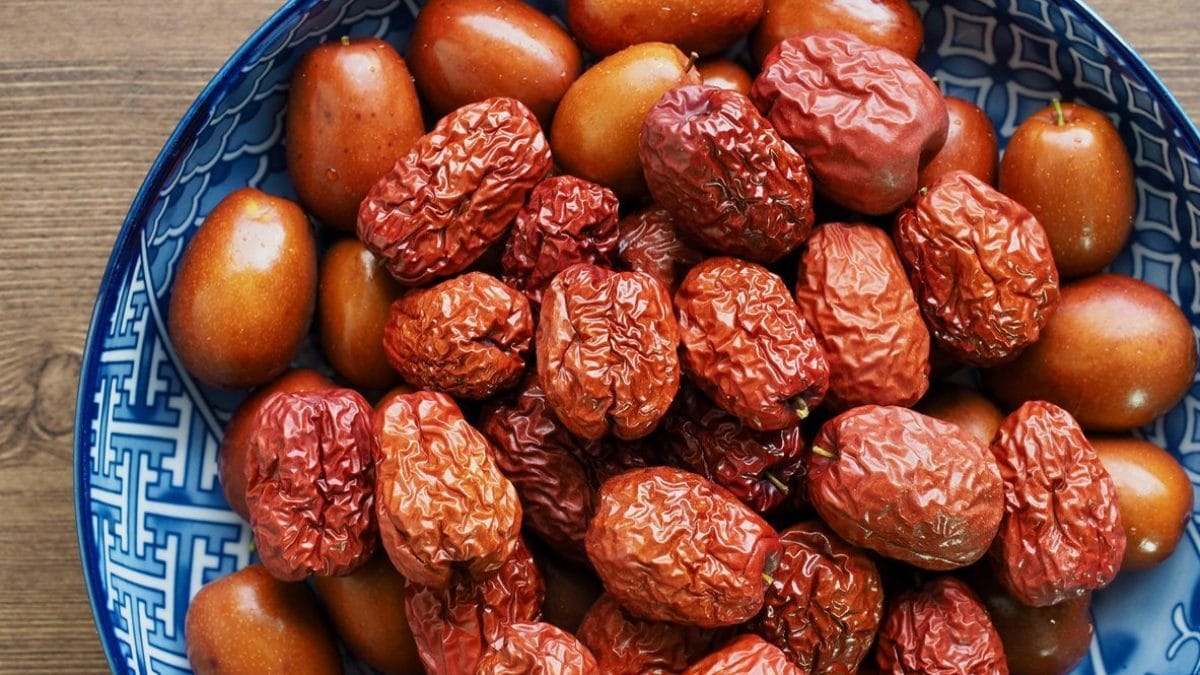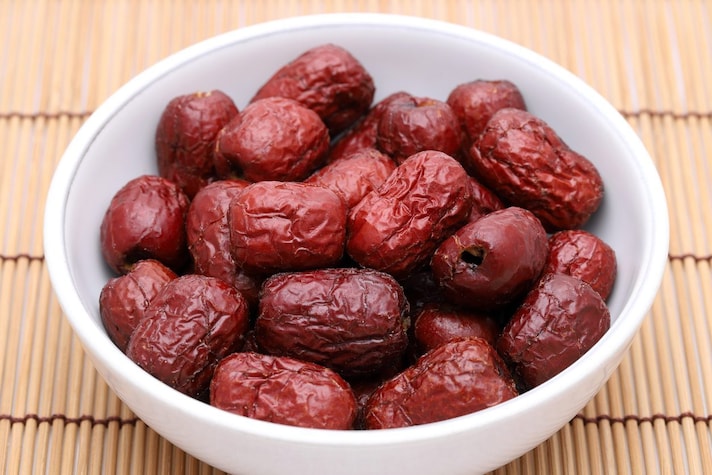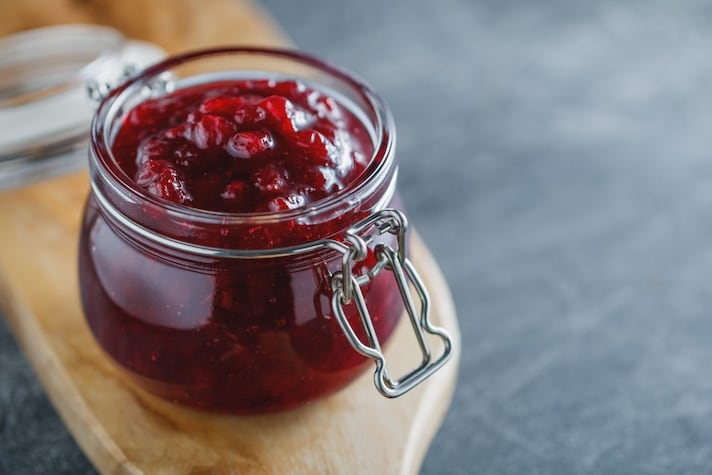
The jujube is the fruit of the jujube tree, an ancient tree belonging to the Rhamnaceae family, native to North Africa and Syria, and particularly widespread over time in China, Korea and Japan. Small and with a sugary flavor with a pleasantly acidic aftertaste, jujubes are now an almost forgotten fruit and difficult to find: also known as Chinese dates or zizzola, they resemble small red-brown olives and can be eaten raw or cooked, in sweet or savory dishes. Arrived in Europe during the Roman Empire, jujubes (whose scientific name is Ziziphus jujuba) boast anti-inflammatory, digestive and soothing properties, help regulate blood pressure and protect the immune system, characteristics that have earned them a front row place in traditional Chinese medicine. So delicious and rich in beneficial properties, these small berries can "survive" very cold temperatures, are an inexhaustible source of vitamin C and antioxidants and, despite what you might think, are very versatile in the kitchen. Here's everything you need to know about these ancient fruits and why we should rediscover them.
Jujubes' Properties and Benefits
Looking at the nutritional profile of this ancient fruit, it is not difficult to understand why it has always been widely used in traditional Chinese medicine: jujubes (fresh) are low in calories and lipids, rich in vitamins and mineral salts and an excellent source of antioxidants and fiber. Among the vitamins, vitamin C stands out, which is essential for the health and balance of the immune system; "Chinese dates" stimulate and protect the immune system, helping us to face the first colds and seasonal ailments; thanks to the high content of flavonoids and glucosides, jujubes help keep blood cholesterol levels under control and guarantee an antioxidant effect, counteract the action of free radicals and cellular aging.
In Chinese medicine, jujubes are used as an anti-inflammatory, antibacterial and natural tonic, they are also useful in cases of fatigue, asthenia, nervousness, insomnia and anxiety linked to periods of strong stress. The good quantity of water and the excellent presence of mineral salts guarantee a diuretic and detoxifying effect, protect the heart and the entire cardiovascular system and have a beneficial effect on muscle contraction and on the health of bones and teeth.

Culinary Uses of Jujubes
Jujubes are harvested in autumn, from mid-September to early November and beyond: they are in fact able to resist very low temperatures. They can be eaten immediately, if well ripe, or after a few days: alternatively they can be dried.
How to use jujubes in the kitchen? Fresh, dried, boiled or processed in more complex and articulated preparations, these small, almost forgotten fruits can be used in many ways. Let's start with the most important thing: what do jujubes taste like? We are talking about sugary fruits with a particular and curious slightly acidic aftertaste, a strong flavor that does not go unnoticed and that allows you to play and experiment more than you can imagine. Freshly picked, jujubes can become an excellent after-meal snack or a nutritious hunger breaker; if left to rest for a few days, they tend to wither and become excellent for preserves in alcohol, creamy jams and syrups but also for teas and infusions to be enjoyed hot or cold.

Those who love to experiment in the kitchen can enjoy jujubes paired with aged cheeses or meat dishes, for a balanced meal full of flavors. In pastry making, dried and pitted jujubes are often used with or in place of the more famous apples, in traditional pies and strudels. And the broth? So good that it has become, in common parlance, a symbol of true happiness, jujube broth is a typical liqueur from Arqua Petrarca, a small town in the province of Padua: a medium-alcoholic preparation obtained from an infusion of jujubes, quinces and sugar which, due to its high sweetness, is said to provide a sense of satisfaction and contentment (probably due to a slight and temporary glycemic peak).
;Resize,width=767;)
